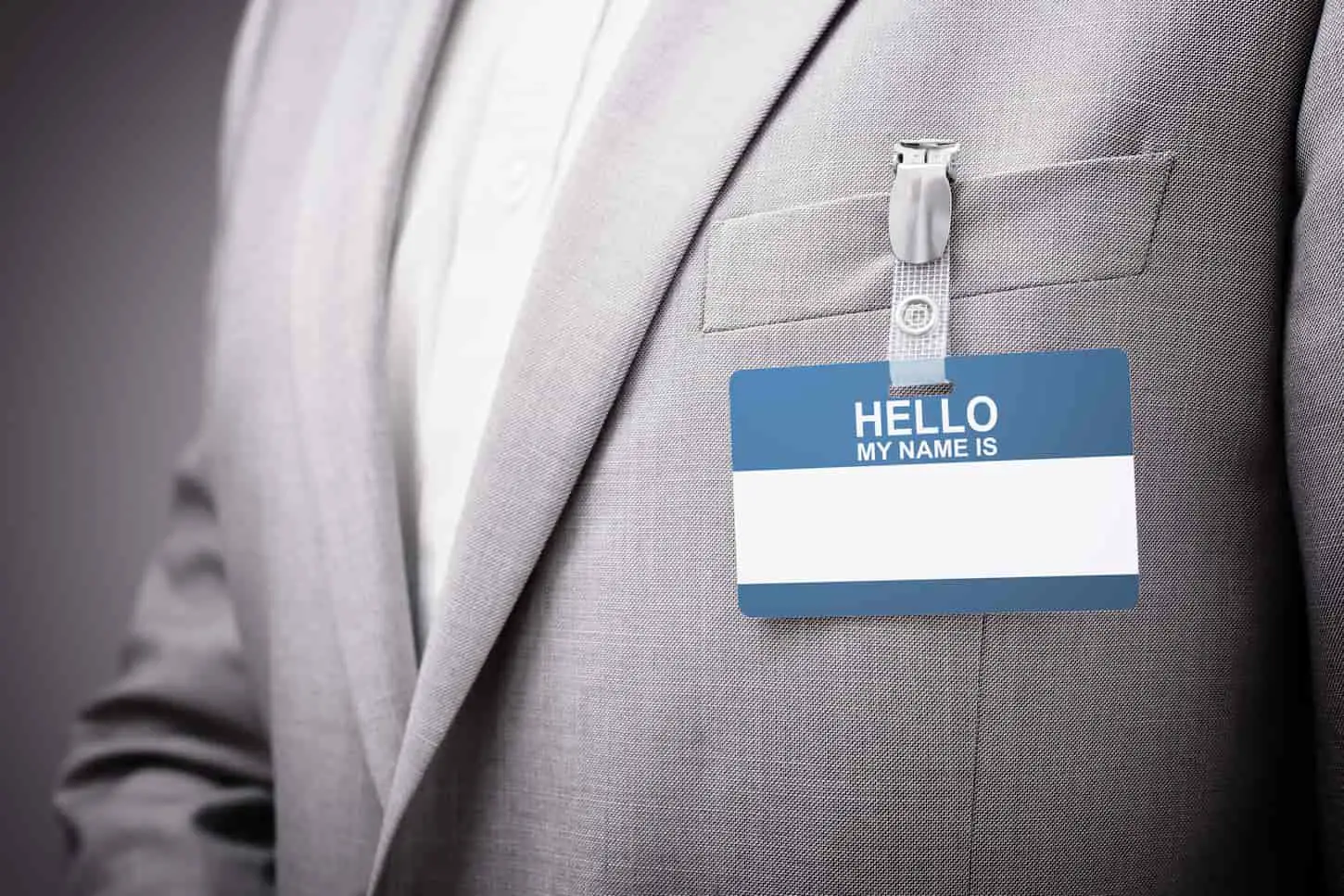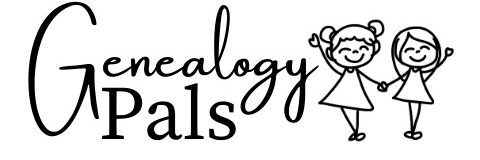While dating my now-husband, it made me laugh when people asked him if he was related to famous people with his same last name. Now that we’re married, though, I’m getting that same question about being related to other Starrs. Are all people with the same last name related? Spoiler alert: no.
Two people with the same last name are not automatically related, depending on how common the surname is and how they acquired that family name. Use the surname to look for heritage clues, and familial point of origin, and then trace each back to a common ancestor or disprove the relationship.
Ready to read about shared surnames, some fun adventures, and wacky hijinks? Okay, fine. There won’t actually be any wacky hijinks. But let’s talk about last names anyway.

Not Everyone with the Same Surname is Related
Just because you have the same surname as another person doesn’t mean you’re related. Or if you are related, it could be as far back as multiple generations, depending on how the last name was passed along through time.
And if that connecting generation is far enough back, then you may not even share much genetic material – or be considered legally related. (Make sure you read our article How many generations until you are no longer related? if you want to know more about genetic and legal relations statuses.)
Or, if you’ve got the same last name but can’t find a common ancestor through the surname lineage, then it’s possible you’re related through another line.
For example – most surnames are passed along a single, direct, paternal line (you got your dad’s last name, who got it from his dad, and so on). Having the same last name as someone else doesn’t mean you’re automatically related. However, you could be related through a maternal line that’s not as obvious, simply because you didn’t both inherit a shared surname from that ancestor.
Or, if you married into the line, then you may have adopted that surname – but you may not be related to others in the family.
Now, you can sit down with that similarly-surnamed person to figure out how you’re related. Or you can keep reading and figure things out the easier way.
How to See if You’re Related (the easier way)
Ready to see if you’re related to someone with the same last name? Great. Then again, this also works for people who don’t have the same last name, so still great.
Here’s how you do it.
- Start by making sure that each of you has a free FamilySearch.org account. This method uses that program’s shared family tree to facilitate finding relatives.
- Go to Relative Finder (click here to go there now in a new window) and sign in. It’ll ask you to sign in with your FamilySearch account – so if you don’t have one yet, go ahead and create yourself a free account now.
- Be patient while it downloads your information.
- The page will auto-load with information about how you relate to famous and historical people.
- Go to the “Connect” option – and either select “with people nearby” or “with a friend” and follow the prompts.
- See how you’re related!
If you have the FamilySearch FamilyTree app, you can do this via that, too.
- Open the FamilyTree app by FamilySearch. Your app will look different, depending on if you have the Apple or Android version.
- From the menu, make sure you both select the “Relatives Around Me” option.
- Click “Scan for Friends.” You and your potential relative will need to be in close proximity during the scanning process. the app will scan for other, opted-in app users within a decently-sized radius and then give you results.
- See how you’re related!
It’s not a perfect method by any means. For one thing, it does require that you have a free FamilySearch account. Or that you have the FamilyTree app installed. Even so, it’s a great way to see how you’re related to someone easily and quickly – and it’ll even show you the point where you connect on your family tree.
For example, Breanne is regularly asked if her husband is related to the Latter-day Saint (Mormon) apostle of the same last name – President Ballard. Using this particular program, Breanne was able to figure out that both she and her husband are actually related to President Ballard. They’re 9th cousins twice removed.
Once you know that connection, make sure you write it down. And always verify that it’s correct with your own family tree data, as FamilySearch does use a shared data model.
Does Your Last Name Determine Your Heritage?
Last names don’t determine your heritage, no. It’s that whole “correlation doesn’t equate with causation” thing, but that’s a bit too much for this article.
Suffice it to say that your last name doesn’t mean you’re from a specific heritage, area, or country. Instead, think of it as a strong hint or a clue. Your last name can give you clues to where your family may have come from, what your heritage may be, or what region of the world your family came from. From there, you might be able to follow your family line somewhere else (from before they moved to the country of origin), though that could get trickier depending on the timeline.
However, thanks to migration patterns, overlaps, and the Anglicization of many surnames (making family names readable in English), then there’s still a good margin of error.
Even so, look at your last name. It’s not definitive proof of anything. But it can point you in some great directions.
Can You Have the Same Last Name as Your Cousin?
Whether or not you and a cousin share the same last name will depend on several factors.
- Local naming practices;
- What side of the family you’re on (shared ancestors);
- Which surname is being considered;
- Other cultural uses of surnames.
For example, if you’re from a family that uses a patrilineal method of names (meaning you share your last name with your father, who got his last name from his father), then the only scenario where you’ll share the last name with a cousin is if they’re your dad’s brother’s kids.
My kids share the same last name as most of their Starr cousins. At least from any of my husband’s brother’s families. My husband’s sister’s daughter (our niece) has a different last name. But my kids don’t share the same last name as any of their cousins from my side of the family.
However, if your family, culture, or region uses another system for passing along surnames, then sharing a surname with a cousin will depend. It will depend on how those names are passed along, as well as if they’re from your mom or dad’s side of the family and which of their siblings are involved.
For example, my Latin friends inherit a surname from their mother and another from their father. As such, their two cultural last names won’t match anyone but their full siblings. Their singular, Americanized last name will match some cousins, though. And these friends say that they share a surname with cousins on both sides of the family – thanks to their cultural practice of adopting two surnames.
How do Unrelated People Have the Same Last Name?
There are a few ways that unrelated people end up with the same last name. Here are some of the most common ways it happens.
- It’s a common family name, and statistics came into play. Seriously. It can just be as simple as this.
- Through marriage. I get asked if I’m related to my husband’s extended family members. I’m not a blood relation, but I am connected to them because I married my husband. And our children are definitely blood relations.
- Accidents happen. It would be fun to pretend that there aren’t ever mixups in paperwork, but that wouldn’t be true. There are instances where the wrong name gets written down, or there’s a misspelling. It could have been an accident, or it could have been an intentional thing.
- You’re (distantly) related, and you don’t know it yet. You may also have the same last name as someone because you share the same, 10th-great-grandparents. Or whatever. But you may be distantly related. It could be far enough back, so you qualify as legally and genetically unrelated despite a shared history.
Could there be more reasons that unrelated people have the same last name? You bet. But these are the most common and plausible reasons we could think of before Breanne vetoed adding my more outlandish ideas (of time travel, mirror universes, and Victorian-age cloning) to this list.
Final Thoughts
Growing up with a less common family surname, I thought for sure I’d never get asked if I was related to some unknown person with the same last name.
However, then I realized that the world was a much bigger place. And that my last name had spread further than I’d realized. I mean, it’s spread enough that I’ve found the wrong Charles’ declaration of intent (naturalization) paperwork.
But the way I found it had spread was while traveling – and I got stopped at a security checkpoint at the airport. Seriously. The agent was concerned that I would do something to undermine the local hockey team and help my maybe-distant relative win the Stanley cup. I reassured them that it wasn’t close enough to get me tickets to the game if we were related. And I was really just there to visit one of my brothers named Jason.
So even if your family name isn’t super common, it’s a fun topic to think about. Because you never know – you might just get asked if you’re related to some other person with your same last name at the weirdest time possible.
Related Questions
Why Are Some Last Names so Common? Last names developed from occupations, places, or associations. As some occupations were very common, many families adopted the same surname despite no blood relationship. For more information on common surnames, including the top 10 most common surnames, read our article here.
What’s the Rarest Last Name? Through the census, the United States keeps track of surnames. The census bureau doesn’t publicly release data on any family names with less than 100 people, so data on the rarest American surname isn’t publicly available knowledge. However, if a surname has at least 100 occurrences, the census bureau does keep and share a public file with that data. Click here to go to the 2010 USA census page (in a new window) and find that file now. It’s called “File B: Surnames Occurring 100 or more times.”
Read our article on why some surnames are so common to help you understand why other surnames are so rare.
How Common is Dating Someone with the Same Last Name – without being related? There is no publicly available data on how common it is to date someone with the same last name (without being related). However, it’s reasonable to assume that people with common last names will experience this more often than those with the last name ending in the “Surnames occurring 100 or more times” census file. Even so, this may happen frequently because there are a ton of search results and articles written on this exact topic – and they address whether it’s taboo.
As an anecdotal data or reference point, though, I can list how many times I saw friends date someone else with the same last name (and they weren’t related) with one hand.
